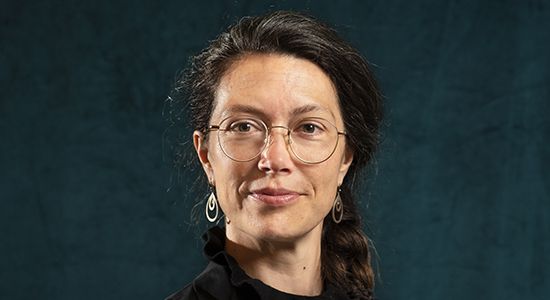Complex Interventions in Public Health (CIPH)
This research group works with Complex Interventions in Public Health (CIPH). Our aim is to address social inequality in health through intervention research. We are an interdisciplinary group of researchers with different backgrounds in public health, psychology, sociology, and nutritional science. We wish to move beyond exploring whether public health interventions work or not and build knowledge about how, under which circumstances, and for whom interventions create change.

Our research is based on involvement of the target groups and other stakeholders including collaborations with municipalities and regions. We approach this process of involvement through various means like meetings, interviews and workshops, but also through more in-depth co-designing processes using for example graphic facilitation. We work in close partnerships with leading researchers from different fields of health research to ensure that our interventions are based on the best public health evidence.
We work with all phases of intervention research including needs assessment, development, feasibility testing, implementation, evaluation and dissemination, long-term anchoring and societal impact of our research. In most of our projects we use mixed-methods design and strive to understand the role of context for mechanisms of change. Our evaluation perspective is usually theory-driven and takes the form of realist evaluation, effectiveness- and natural experiment studies.
Ongoing research projects in the CIPH group include:
In the breastfeeding project we evaluate an intervention implemented in a cluster randomized trial in the Danish health-visiting programme (20 municipalities participate in the trial). The intervention aims to improve breastfeeding duration by strengthening the support delivered to families during the first six months after birth.
The evaluation of the intervention is comprehensive and includes:
- an effectiveness evaluation by use of survey-data and register-based data
- a process evaluation
- a realist evaluation
- a health economic evaluation
Find further information about the project at: Breastfeeding - a good start together
In the CCDC project, we evaluate three diabetes interventions developed and implemented in the public-private partnership programme 'CCDC'. The interventions aim to support socially vulnerable people in their everyday life with type 2 diabetes. They include a community-based peer support programme, outgoing diabetes rehabilitation and a GP-coverage model to improve access to GPs in disadvantaged areas in Copenhagen.
The evaluation is carried out using a realist evaluation approach. Find further information about the CCDC partnership programme at Cities Changing Diabetes and the peer support programme at: 'The Together on Diabetes' peer support programme
In the DETECT-project we develop and feasibility-test an intervention to identify vision loss and vision impairment among older patients in general practice. Central to the project is the engagement of patients in the development-phase and a use of creative methods such as graphic facilitation.
In this project we aim to develop, implement and evaluate different educational intervention studies in order to increase the population's fertility knowledge and awareness.
STRIT is a multi-methods research project, which aims to understand how large structural changes to the built environment affect the health, wellbeing and social relations of residents in a social housing area in the outskirts of Copenhagen.
In this collaborative project, together with Prof. Trine Munk-Olsen (PI at SDU) and Kim Mathiasen (SDU), we adapt an existing internet-based intervention for depression to women with postpartum depression and evaluate its effectiveness and implementation. Central to this project is the collaboration with visiting nurses to identify women with postpartum depression. In addition, we collaborate with ethnic minorities and non-Danish speaking women to map out the cultural adaptation of the intervention.
Overall, the section conducts applied research. The research spands from monitoring of health, disease and patient care to development and evaluation of interventions and models for implementation.
MAMAACT aims to reduce the social and ethnic inequity in maternal and child health in Denmark by strengthening the dialogue between pregnant women and the midwives about pregnancy complications. MAMAACT is a cluster trial including 19 out of 20 maternity wards in Denmark. 350 midwives have participated in MAMAACT’s post graduate education program and 25.000 pregnant women have received the intervention.
In this qualitative project we explored how a health visiting program developed to support the integration of new refugee families arriving to Denmark, enables the psychological well-being of refugee mothers (finalized project).
Funded by the European Union’s Horizon 2020 research and innovation programme under the Marie Sklodowska-Curie grant agreement No 897159
In this project we assess couples’ experience and needs during pregnancy after prior pregnancy loss and develop a support intervention addressing what to expect and how to cope during new pregnancy along with training for medical health professionals working with this population.

Research group leader:
Sarah Fredsted Villadsen
Associate professor,
E-mail: sfv@sund.ku.dk
Phone: +45 35 32 79 97
Researchers
| Name | Title | Phone | |
|---|---|---|---|
| Search in Name | Search in Title | Search in Phone | |
| Gadeberg, Anne Kristine | PhD Fellow | +4535332966 | |
| Lykke-Sylvest, Randi | External Postdoc | ||
| Rossau, Henriette Knold | Postdoc | +4535325179 | |
| Toft, Ulla Marie Nørgaard | Clinical Professor | +4529997877 | |
| Villadsen, Sarah Fredsted | Associate Professor - Promotion Programme | +4535327997 |
